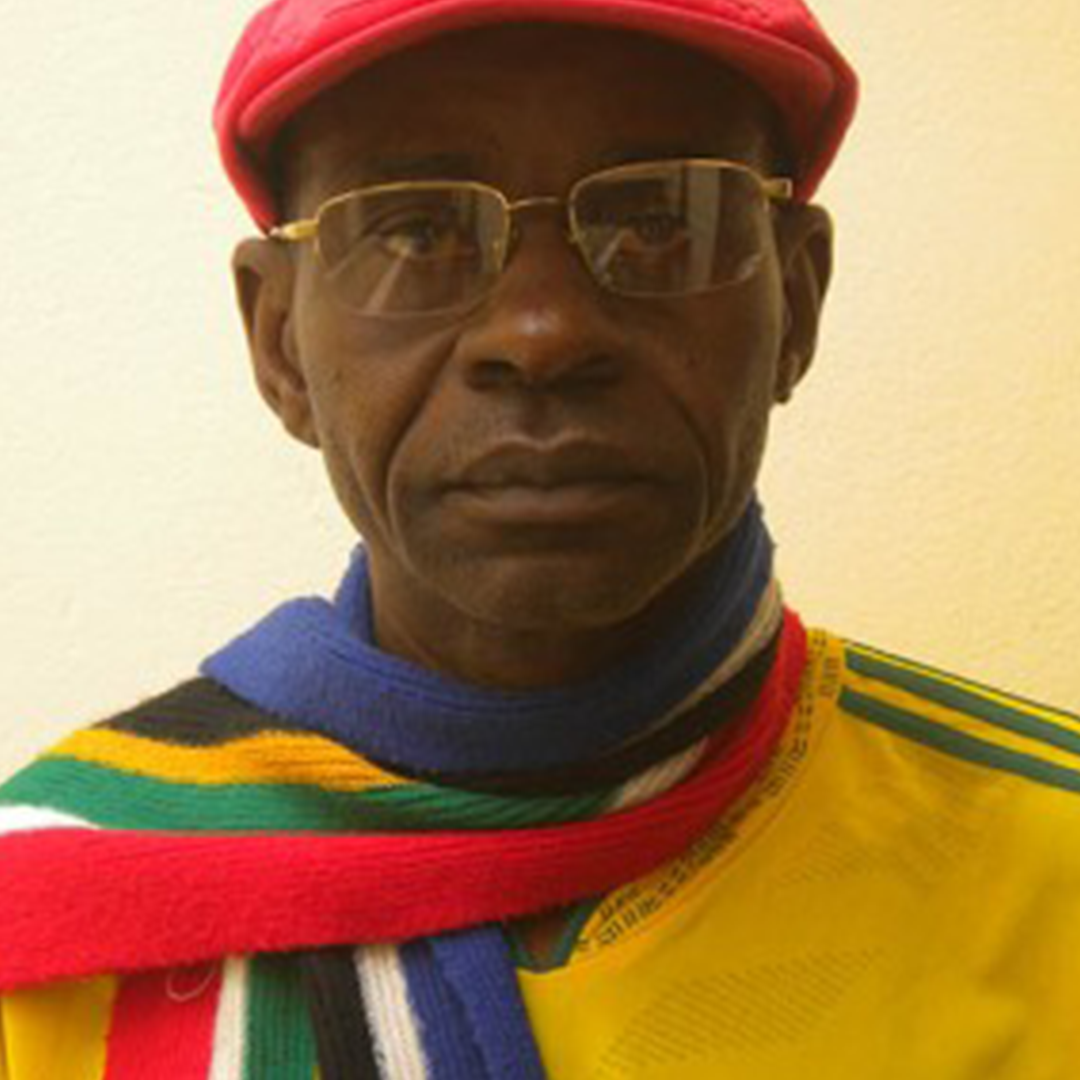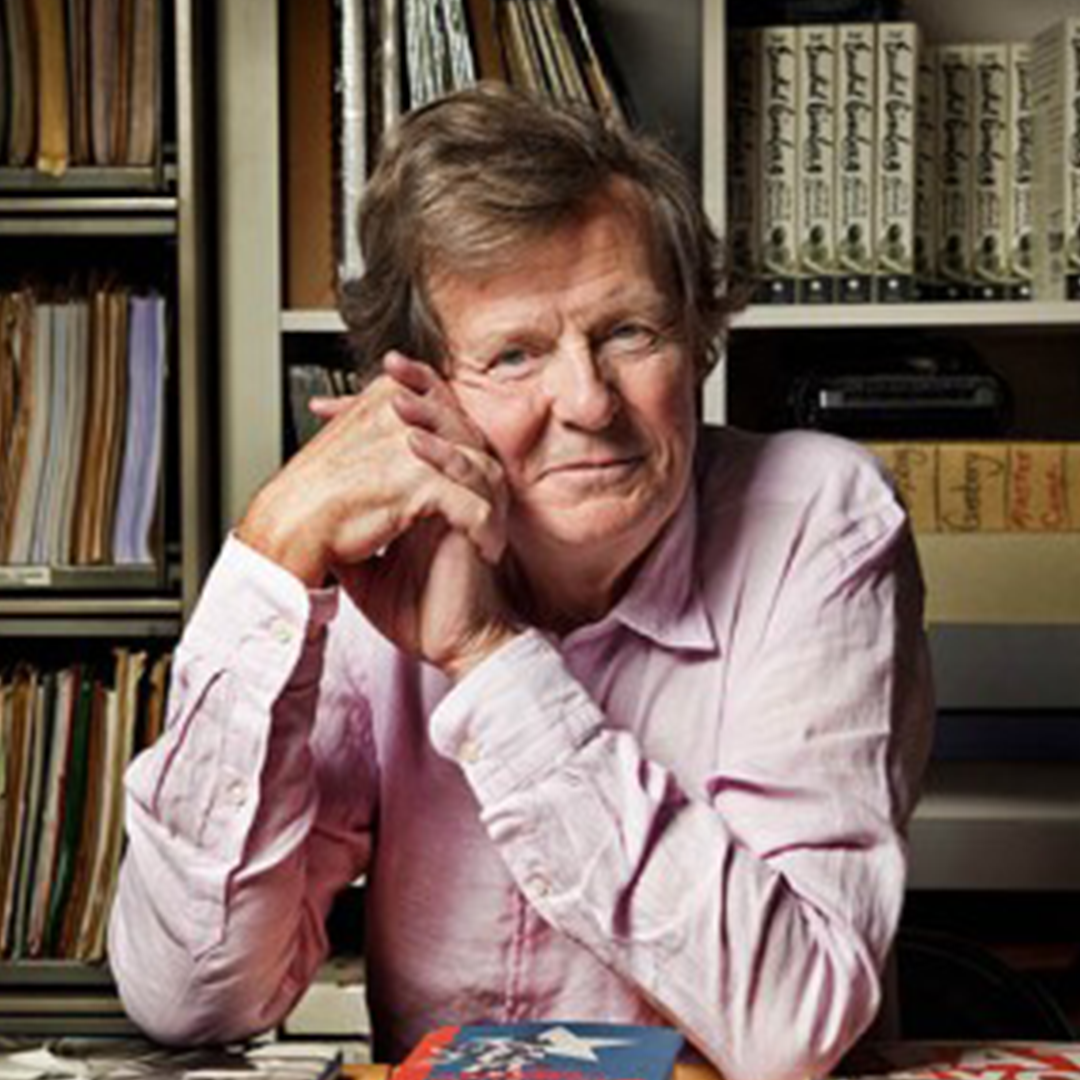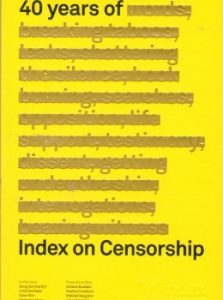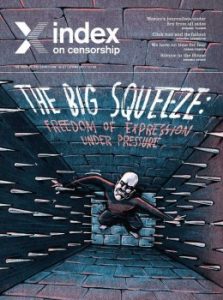Index relies entirely on the support of donors and readers to do its work.
Help us keep amplifying censored voices today.
[vc_row][vc_column][vc_single_image image=”114463″ img_size=”full” add_caption=”yes” alignment=”center”][vc_column_text]“Journalists are very, very afraid. They are being seen as enemies of the state because of this surveillance, because of their political activism, opposition politicians are afraid, everybody is afraid of the government,” said Issa Sikiti da Silva, a journalist from the Democratic Republic of Congo who has travelled to and reported from many countries across Africa. Sikiti da Silva was speaking at the digital launch party of the Index on Censorship summer magazine, held on Friday 31st July.
The summer issue looks at the ways in which our privacy is being increasingly infringed upon in the coronavirus era. From health code apps in China dictating when people can leave their homes to poor digital literacy levels in Italy (and beyond) leaving people vulnerable to exploitation, the magazine takes a broad view.
Sikiti da Silva was joined by Turkish writer and journalist Kaya Genç and Spanish journalist Silvia Nortes. The panel was chaired by Rachael Jolley, editor-in-chief of Index on Censorship magazine.
“The state is tapping our phones, the state is following us into Starbucks branches…they’re all around you. But with online surveillance it’s impossible for me to know whether someone from the Turkish embassy in Britain is watching this event or someone from the intelligence agency in Turkey is watching this event. So it puts us on the spot, this new age of digital surveillance, and that’s what my piece was about for the new issue of Index,” said Genç as part of the discussion.
When asked if recent increased surveillance, in light of the Covid-19 pandemic, was a cause for concern in terms of media freedom all panellists said it was.
Genç explained how digital surveillance is a more insidious form of government espionage, which is causing a fresh set of worries: “In a country like Turkey the state is a very palpable thing, you see it on the street…and its presence makes it a bit vulnerable because we are the one that is scrutinising that visible entity. But now it seems with apps like Life Fits Home [a Covid-19 tracing app], the state became invisible and its surveillance powers have increased.”
Nortes discussed how, in Spain, reactions to Covid-19 tracing apps and state surveillance have fallen along generational lines: “Younger people are more open to using this kind of app because, of course, they are aware that we live in a hyper connected society.”
She suggested that historical precedents may have imbued older generations with a different perspective on security around their personal information: “They feel more reluctant to give in their data and I believe this is connected somehow with [General] Franco’s dictatorship.”
She continued: “The surveillance of these years really has something to do with the concept of private life that older generations have in Spain.”
Sikiti da Silva painted a picture of Africa as a continent in which dictators continue to rule.
“Journalists are being watched over [by the state] and by the time they have enough evidence then they will move on you or arrest you or kill you whatever they want to do with you.”
When Jolley asked if anyone was fighting back against this kind of oppression, Sikiti da Silva was blunt in his reply. He said that without money or power, there is no fighting back. “What people do mostly is to run away. In Africa we only have one solution. You run away…that’s all you can do. You just leave the country before it is too late.”
This has informed Sikiti da Silva’s travels around Africa: “Where there is media freedom I stay. Where there is no media freedom I do two or three stories, then I run away.”
Nortes said that the national security force in Spain is working on detecting ‘fake news’ which could “generate hostility toward the government’s decisions”.
“This is targeted surveillance, they’re just looking for news that could affect in a bad way the government’s management of the pandemic.” This is a trend that Index has been reporting on as part of a global project to map media freedom during the coronavirus crisis.
“We need to be sure that once the pandemic is over we will have the same rights that we had before,” added Nortes.
Click here to read more about the current magazine [/vc_column_text][/vc_column][/vc_row]
FEATURING

Journalist
Issa Sikiti da Silva is an award-winning freelance journalist who has traveled extensively across Africa. Born in Kinshasa, the capital of the Democratic Republic of Congo, he has lived in South Africa and worked as a foreign correspondent in West Africa. His work has been published in nearly 40 media outlets

Actor and playwright

Playwright
David Hare is a playwright and film-maker. He has written over thirty stage plays which include Plenty and Pravda (with Howard Brenton). For film and television, he has written nearly thirty screenplays which include Licking Hitler, The Hours, The Reader and Denial. In a millennial poll of the greatest plays of the 20th century, five of the top 100 were his
[vc_row][vc_column][vc_column_text]Index on Censorship was established in 1972 in a febrile period: Idi Amin had taken power in Uganda, the Vietnam war continued, direct rule was imposed in Northern Ireland, there was a coup in Bolivia and Congo was renamed Zaire by its dictator president. As writer Robert McCrum said in our 40th anniversary issue: “The abuses of freedom worldwide in the 1970s were so appalling and so widespread that the magazine rapidly found itself in the frontline of campaigns. Index became a clarion voice in the cause of free expression.” The right to protest and freedom of expression are now being sought in Hong Kong and elsewhere, and Index is still to the forefront in reporting abuses. Here are just some of the conflicts between freedom and dictatorship we have reported on in the past 47 years.

The first issue of Index on Censorship magazine, in March 1972
The Clockwork Show vol 1, issue 1, March 1972
In an anonymous article about life in Greece under the regime of the Colonels’ junta, the writer considered the psychology of the situation; the feelings and attitudes, the long-ranging impact of this harrowing experience. “There is nothing more demoralizing than to be bound to a public body, an administration, a government with which one can never for a moment identify, which is the exact opposite of everything one believes in. One cannot live side by side with Philistinism, chauvinism, bigotry, blatant hypocrisy, crass ignorance, injustice, violence and brutality and not be affected by them, even if one manages—only just—to keep them out of one’s own life. Under this regime there is no relief; no exception: the regime has penetrated every single aspect of public life.”
Read the full article

March 1974: TV, politics and Chile Index on Censorship magazine
Book burning and brutality vol 3, issue 1, March 1974
A fascinating insight into life in Chile six months after a coup ended the tyranny of President Salvador Allende: worse was to come under a military dictatorship, reported Michael Sanders, an Englishman in Santiago. “When Allende left Chile to address the UN in December 1972, a leading opposition newspaper had as its front-page a photo depicting the president flushing himself down a lavatory, with the caption ‘ good riddance’. The contrast in December 1973 is gloomy indeed. Not so much, or not only because of the drab uniformity of censored newspapers that, for all they may be censored, willingly reflect the views of the Military Junta. But for the fact that 43.6% of the population have been deprived of all means of expression, of all normal communication, and live in daily fear of their lives and jobs.”
Read the full article

Russia, East Germany, South Africa: May 1979 Index on Censorship magazine
Black journalists under apartheid volume 8, issue 3, May 1979
William A Hachten reports: Black journalists came to the fore in the Soweto riots of 1976 when they reported from the ghetto for a white press without access. Yet black journalists still faced daily harassment under apartheid, which worsened with the death of Steve Biko in 1977. Vusi Radebe, a black stringer for the Rand Daily Mail, said: “The situation is worse since the 1976 riots. Police will beat up reporters on the slightest provocation for what they consider obstruction of justice.” While whites had 23 newspapers, there were none for non-whites to express their political frustration. Black journalist Pearl Luthuli said: “The black journalist can’t be objective. We try to tell it like it is but the white editors won’t print it.” Another said: “We are black people first, journalists second. If it comes to a conflict between the struggle and the job, the struggle comes first.”
Read the full article

Beckett and Havel: Index on Censorship magazine, February 1984
Iran under the party of God, volume 13, issue 1, February 1984
“Censorship was planned by the regime of the Islamic Republic even before the February 1979 revolution brought Ayatollah Khomeini’s theocratic oligarchy to power. This particular kind of censorship may not be without precedent in history, but it must certainly be rare. There were attacks on coffee-houses, restaurants and other public places by men armed with clubs and stones; unveiled women were harassed; slogans of the opposition were cleaned from the walls; banks, cinemas and theatres were burned” – a personal account of the first years of the revolution and its attack on culture, by one of Iran’s leading writers Gholam Hoseyn Sa’edi. “And it keeps on happening. The Islamic regime of today has gone a step beyond censoring the creations of science, culture and art, beyond censoring life itself: it has rendered life vain and all but unliveable.”
Read the full article

Romania, Albania, USSR: Index on Censorship magazine January 1991
A sense of solidarity, volume 20, issue 1, January 1991
Romania’s celebrated poet, Ana Blandiana, on censorship under Ceausescu and how she fought back. Her work was completely banned three times. “In my case, the form of censorship progressed from the banning of a word to that of a line, then of a poem, then of a book, to the total erasure of my signature as author: an eradication of identity. My inner freedom was assured by a decision I took in 1980, a personal one rather than as a writer. I decided to be outspoken and say what I thought at the risk of becoming a victim myself, rather than suspect a possibly honest person. At first it kept me sane, and then it helped me to be a normal writer, relatively free of self-censorship. This was the strongest form of censorship under Communism in the last 10 or 15 years, and was much more refined and subtle than the official censorship.”
Read the full article

How free is the Russian media? Index on Censorship, Spring 2007
The Big Squeeze, volume 37, issue 1, Spring 2008
“The fact remains that since the departure of the oligarchs, Russian media freedom has gone from the imperfect and beleaguered to the moribund. At national television, which 90 per cent of Russians say is their main source of news, editors receive weekly or even daily instructions from the Kremlin on the ‘line to take’ on important stories; around half of Russian viewers think that what they watch is objective, a 2007 poll said. Foreign coverage is polemical and outrageously politicised. The message of all this is ‘be quiet’. If you annoy the rich and powerful you face threats, beatings or death. Even when the Kremlin is not directly involved, its reaction to the persecution of journalists sends a clear message: if you offend the powerful, don’t expect the law to protect you.” Edward Lucas gave an early taste of what freedom of expression meant under Putin.
Read the full article

40 years of Index on Censorship March 2012
Grit in the engine, volume 41, issue 1, Spring 2012
Robert McCrum on the 40th anniversary of Index on Censorship. “The success of Index was not a foregone conclusion. Stephen Spender, its founder, was fully alert to the potential for windbaggery and failure. There was, he wrote, ‘the risk that the magazine will become simply a bulletin of frustration’. Actually, the opposite came to pass. Index became a clarion voice in the cause of free expression. The abuses of freedom worldwide in the 1970s were so appalling and so widespread that the magazine rapidly found itself in the frontline of campaigns. Perhaps the most important thing Index did, from the beginning, was to universalise an issue in peril of becoming a special interest: freedom was not ‘a luxury enjoyed by bourgeois individualists’. Along with self-expression, it was a human right, and an instrument of human consciousness.
Read the full article

The big squeeze: Index on Censorship magazine Spring 2017
Freedom of expression under pressure, volume 46, issue 1, Spring 2017
The spring 2017 issue of Index on Censorship magazine looks at how pressures on free speech are currently coming from many different angles, not just one. Special features on how to spot fake news, articles from former BBC World Service director Richard Sambrook and former UK attorney general Dominic Grieve, an exclusive interview with the Spanish puppeteer arrested last year, and fiction from award-winning writer Karim Miské.
[/vc_column_text][/vc_column][/vc_row]
[vc_row full_width=”stretch_row”][vc_column][vc_video link=”https://youtu.be/JeDl0BWXXOc”][/vc_column][/vc_row][vc_row][vc_column][vc_single_image image=”105881″ img_size=”full” add_caption=”yes” alignment=”center” css_animation=”fadeIn”][vc_column_text]A Kurdish artist imprisoned for her paintings of the destruction of a town in Turkey’s Kurdish region and a worldwide network monitoring threats and abuses against editorial cartoonists around the world are among the winners of the 2019 Index on Censorship Freedom of Expression Awards.
The winners, who were announced on Thursday evening at a gala ceremony in London, also include a Colombian civil society organisation that challenges online trolls by flagging abuse and an award-winning broadcast journalist from Cameroon who was arrested in November 2018 for her reporting.
Awards were presented in four categories: arts, campaigning, digital activism and journalism.
The winners are: Turkish artist Zehra Doğan (arts); Cartoonists Rights Network International (campaigning); Fundación Karisma, an organisation challenging the growing online harassment of women in Colombia (digital activism); and Mimi Mefo, one of less than a handful of journalists working without fear or favour in Cameroon’s climate of repression and self-censorship (journalism).
“These winners deserve global recognition for their amazing work,” said Index on Censorship CEO Jodie Ginsberg. “Like all those nominated, they brave massive personal and political hurdles simply so that others can express themselves freely.”
Drawn from more than 400 public nominations, the winners were presented with their awards at a ceremony at The Mayfair Hotel, London, hosted by comedian Nish Kumar.
Actors, writers and musicians were among those celebrating with the winners. The guest list included Tim Moloney QC, the deputy head of Doughty Street Chambers, writer, broadcaster and chair of Index on Censorship Trevor Philips, Malaysian cartoonist Zunar, historian and commentator Timothy Garton Ash and more.
Winners were presented with cartoons created by Egyptian cartoonist Doaa el-Adl.

Each of the award winners will become part of the fifth cohort of Freedom of Expression Awards fellows. They join last year’s winners — The Museum of Dissidence, a public art project and website celebrating dissent in Cuba (arts); The Egyptian Commission for Rights and Freedoms, one of the few human rights organisations still operating in a country which has waged an orchestrated campaign against independent civil society groups (campaigning); Habari RDC, a collective of more than 100 young Congolese bloggers and web activists, who use Facebook, Twitter and YouTube to give voice to the opinions of young people from all over the Democratic Republic of Congo (digital activism); and Wendy Funes, an investigative journalist from Honduras who regularly risks her life to report on what is happening in the country, an extremely harsh environment for reporters (journalism) — as part of a world-class network of campaigners, activists and artists sharing best practices on tackling censorship threats internationally.
Through the fellowship, Index works with the winners – both during an intensive week in London and the rest of the awarding year – to provide long-term, structured support. The goal is to help winners maximise their impact, broaden their support and ensure they can continue to excel at fighting free expression threats on the ground.
This year’s panel of judges included actor and filmmaker Khalid Abdalla, writer and social activist Nimco Ali, writer and academic Kate Devlin and Rappler CEO and executive editor Maria Ressa.
Awards judge Abdalla said: “The abyss we are facing all over the world requires acts of courage and intellect capable of changing the terms of how we think and respond to the challenges ahead. We have to celebrate those who inspire us and lead by example, not just because they have managed to break barriers in their own contexts, but because some part of what they do holds a key for us all.”
This is the 19th year of the Freedom of Expression Awards. Former winners include activist Malala Yousafzai, cartoonist Ali Ferzat, journalists Anna Politkovskaya and Fergal Keane and Bahrain Center for Human Rights.
Ziyad Marar, president of global publishing at Sage, said: “We are once again proud to sponsor tonight’s awards ceremony. We’re inspired by the achievements recognised tonight and remain in awe of Index’s work to champion, and bring to light, the work of these remarkable individuals. The protection and promotion of free speech is a belief deeply ingrained within our values at Sage and, as publisher of the magazine, we’re committed to supporting Index as they continue to confront issues of censorship globally. Congratulations to all those recognised tonight.”[/vc_column_text][/vc_column][/vc_row][vc_row][vc_column][vc_custom_heading text=”2019 Freedom of Expression Arts Award” font_container=”tag:h3|text_align:center” use_theme_fonts=”yes”][vc_single_image image=”105885″ img_size=”full” add_caption=”yes” alignment=”center”][vc_column_text]Zehra Doğan | Turkey
Released from prison on 24 February 2019, Zehra Doğan is a Kurdish painter and journalist who, during her imprisonment, was denied access to materials for her work. She painted with dyes made from crushed fruit and herbs, even blood, and used newspapers and milk cartons as canvases. When she realised her reports from Turkey’s Kurdish region were being ignored by mainstream media, Doğan began painting the destruction in the town of Nusaybin and sharing it on social media. For this she was arrested and imprisoned. During her imprisonment she refused to be silenced and continued to produce journalism and art. She collected and wrote stories about female political prisoners, reported on human rights abuses in prison, and painted despite the prison administration’s refusal to supply her with art materials.
Speech: “It is not only art that has had boundaries drawn around it in Turkey”
Profile: Artist Zehra Doğan refused to be silenced[/vc_column_text][/vc_column][/vc_row][vc_row][vc_column][vc_custom_heading text=”2019 Freedom of Expression Campaigning Award” font_container=”tag:h3|text_align:center” use_theme_fonts=”yes”][vc_single_image image=”105883″ img_size=”full” add_caption=”yes” alignment=”center”][vc_column_text]Cartoonists Rights Network International | United States / International
Cartoonists Rights Network International (CRNI) is a small organisation with a big impact: monitoring threats and abuses against editorial cartoonists worldwide. Marshalling an impressive worldwide network, CRNI helps to focus international attention on cases in which cartoonists are persecuted and put pressure on the persecutors. CRNI tracks censorship, fines, penalties and physical intimidation – including of family members, assault, imprisonment and even assassinations. Once a threat is detected, CRNI often partners with other human rights organisations to maximise the pressure and impact of a campaign to protect the cartoonist and confront those who seek to censor political cartoonists.
Profile: Cartoonists Rights Network International defends cartoonists worldwide[/vc_column_text][/vc_column][/vc_row][vc_row][vc_column][vc_custom_heading text=”2019 Freedom of Expression Digital Activism Award” font_container=”tag:h3|text_align:center” use_theme_fonts=”yes”][vc_single_image image=”106261″ img_size=”full” add_caption=”yes” alignment=”center”][vc_column_text]
Fundación Karisma, Colombia
Fundación Karisma is a civil society organisation that challenges online trolls by using witty online ‘stamps’ that flag up internet abuse. It is an initiative that uses humour to draw attention to a serious problem: the growing online harassment of women in Colombia and its chilling effect. The organisation offers a rare space to discuss many issues at the intersection of human rights and technology in the country and then tackles them through a mix of research, advocacy and digital tools. Karisma’s “Sharing is not a crime” campaign supports open access to knowledge against the backdrop of Colombia’s restrictive copyright legislation.
Profile: Colombia’s Fundación Karisma works to enhance digital rights
[/vc_column_text][/vc_column][/vc_row][vc_row][vc_column][vc_custom_heading text=”2019 Freedom of Expression Journalism Award” font_container=”tag:h3|text_align:center” use_theme_fonts=”yes”][vc_single_image image=”105884″ img_size=”full” add_caption=”yes” alignment=”center”][vc_column_text]Mimi Mefo | Cameroon
Mimi Mefo is one of less than a handful of journalists working without fear or favour in Cameroon’s climate of repression and self-censorship. An award-winning broadcast journalist at private media house Equinoxe TV and Radio, Mefo was arrested in November 2018 after she published reports that the military was behind the death of an American missionary in the country. Mefo reports on the escalating violence in the country’s western regions, a conflict that has become known as the “Anglophone Crisis” and is a leading voice in exposing the harassment of other Cameroonian journalists, calling publicly for the release of those jailed.
Speech: “This award is for those who stood and have continued to stand for press freedom”
Profile: Mimi Mefo works without fear or favour in Cameroon’s climate of repression and self-censorship[/vc_column_text][/vc_column][/vc_row][vc_row full_width=”stretch_row_content”][vc_column][vc_single_image image=”105882″ img_size=”full” add_caption=”yes” css_animation=”fadeIn”][/vc_column][/vc_row][vc_row full_width=”stretch_row_content_no_spaces”][vc_column][vc_column_text]
[/vc_column_text][vc_media_grid grid_id=”vc_gid:1554969857859-f1f04179-f2a6-10″ include=”105874,105875,105876,105878,105879,105880,105881,105882,105883,105884,105885,106094,106029,106030,106031,106032,106033,106034,106048,106049,106050,106051,106052,106053,106054,106055,106056,106057,106058,106059,106060,106063,106064,106065,106066,106067,106068,106069,106075,106077,106078,106079,106080,106090,106091,106092,106261″][/vc_column][/vc_row][vc_row][vc_column][vc_basic_grid post_type=”post” max_items=”12″ style=”load-more” items_per_page=”4″ element_width=”6″ grid_id=”vc_gid:1554969857860-55772dad-9263-1″ taxonomies=”8935, 26925″][/vc_column][/vc_row][vc_row full_width=”stretch_row_content_no_spaces” css=”.vc_custom_1554478654304{margin-top: 20px !important;padding-top: 20px !important;padding-bottom: 20px !important;}”][vc_column][vc_row_inner][vc_column_inner][vc_custom_heading text=”SPONSORS” font_container=”tag:h1|text_align:center” use_theme_fonts=”yes” css=”.vc_custom_1484567001197{margin-bottom: 30px !important;}”][vc_column_text]
Index is grateful to those who are supporting the 2019 Awards:
[/vc_column_text][/vc_column_inner][/vc_row_inner][vc_row_inner equal_height=”yes” el_class=”container container980″][vc_column_inner width=”1/2″ offset=”vc_col-xs-6″][vc_single_image image=”80918″ img_size=”full” alignment=”center” onclick=”custom_link” img_link_target=”_blank” link=”https://uk.sagepub.com/”][/vc_column_inner][vc_column_inner width=”1/2″ offset=”vc_col-xs-6″][vc_single_image image=”80921″ img_size=”full” alignment=”center” onclick=”custom_link” img_link_target=”_blank” link=”https://www.google.co.uk/about/”][/vc_column_inner][/vc_row_inner][vc_row_inner equal_height=”yes” el_class=”container container980″][vc_column_inner width=”1/3″ offset=”vc_col-xs-6″][vc_single_image image=”85983″ img_size=”full” alignment=”center” onclick=”custom_link” link=”https://www.privateinternetaccess.com/”][/vc_column_inner][vc_column_inner width=”1/3″ offset=”vc_col-xs-6″][vc_single_image image=”85977″ img_size=”full” alignment=”center” onclick=”custom_link” link=”http://www.edwardian.com/”][/vc_column_inner][vc_column_inner width=”1/3″ offset=”vc_col-xs-6″][vc_single_image image=”105358″ img_size=”234×234″ alignment=”center” onclick=”custom_link” link=”https://mainframe.com/”][/vc_column_inner][/vc_row_inner][vc_row_inner equal_height=”yes” el_class=”container container980″][vc_column_inner width=”1/3″ offset=”vc_col-xs-6″][vc_single_image image=”105536″ img_size=”full” alignment=”center” onclick=”custom_link” img_link_target=”_blank” link=”http://www.vodafone.com/content/index.html#”][/vc_column_inner][vc_column_inner width=”1/3″ offset=”vc_col-xs-6″][vc_single_image image=”105360″ img_size=”234×234″ alignment=”center” onclick=”custom_link” link=”https://www.francemediasmonde.com/”][/vc_column_inner][vc_column_inner width=”1/3″ offset=”vc_col-xs-6″][vc_single_image image=”105359″ img_size=”234×234″ alignment=”center” onclick=”custom_link” link=”https://www.dailymail.co.uk/home/index.html”][/vc_column_inner][/vc_row_inner][vc_row_inner equal_height=”yes” el_class=”container container980″][vc_column_inner width=”1/3″ offset=”vc_col-xs-6″][vc_single_image image=”80924″ img_size=”200×200″ alignment=”center” onclick=”custom_link” img_link_target=”_blank” link=”https://psiphon.ca/”][/vc_column_inner][vc_column_inner width=”1/3″ offset=”vc_col-xs-6″][vc_single_image image=”105361″ img_size=”200×200″ alignment=”center” onclick=”custom_link” link=”https://www.telegraph.co.uk/”][/vc_column_inner][vc_column_inner width=”1/3″ offset=”vc_col-xs-6″][vc_single_image image=”105363″ img_size=”200×200″ alignment=”center” onclick=”custom_link” link=”https://www.societyofeditors.org/”][/vc_column_inner][/vc_row_inner][vc_row_inner equal_height=”yes” el_class=”container container980″][vc_column_inner width=”1/3″ offset=”vc_col-xs-6″][vc_single_image image=”105365″ img_size=”200×200″ alignment=”center” onclick=”custom_link” link=”https://www.news.co.uk/”][/vc_column_inner][vc_column_inner width=”1/3″ offset=”vc_col-xs-6″][vc_single_image image=”106100″ img_size=”200×200″ alignment=”center” onclick=”custom_link” link=”https://www.mirror.co.uk/”][/vc_column_inner][vc_column_inner width=”1/3″ offset=”vc_col-xs-6″][/vc_column_inner][/vc_row_inner][vc_column_text]
If you are interested in sponsorship you can contact [email protected]
[/vc_column_text][/vc_column][/vc_row]